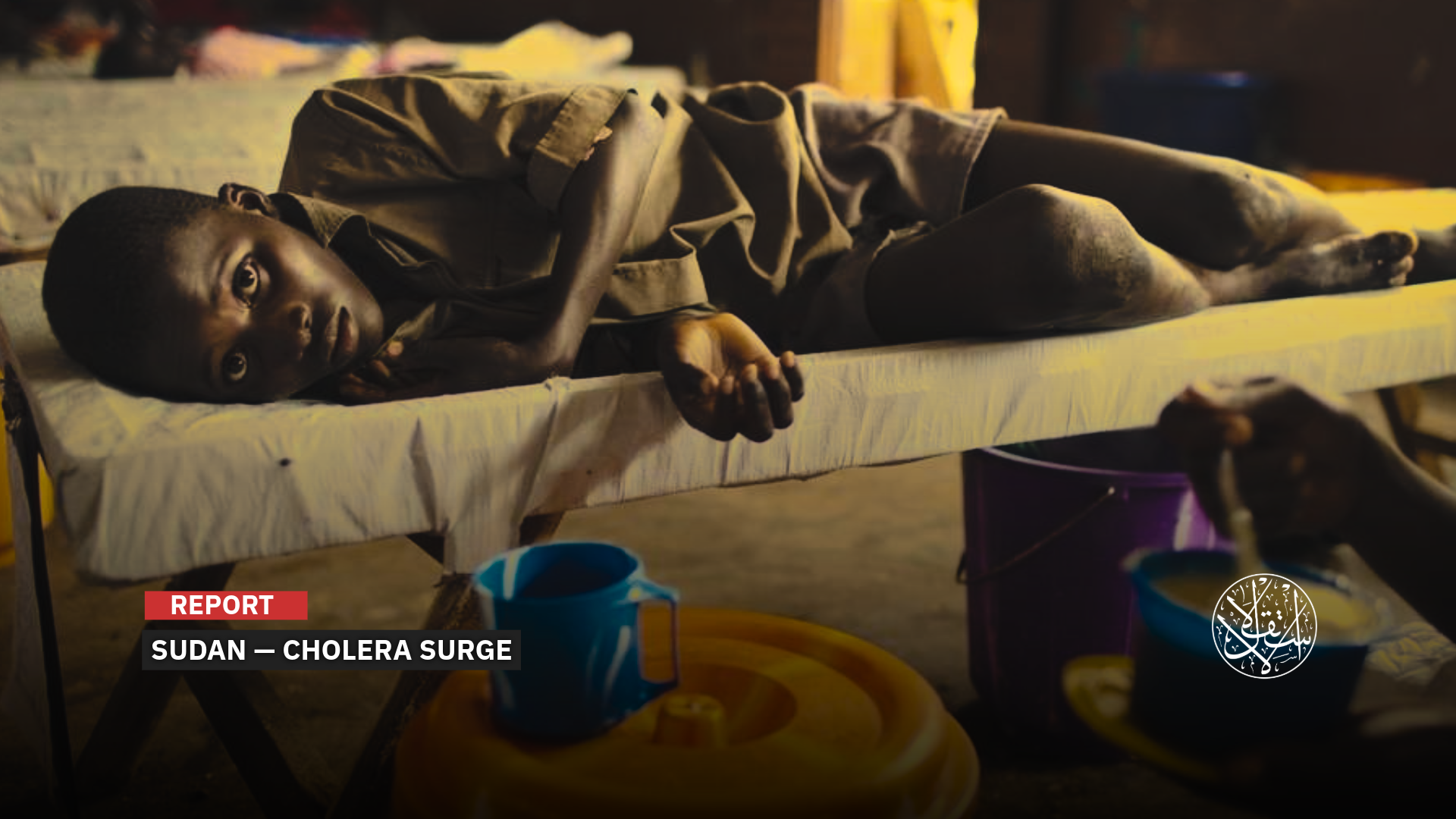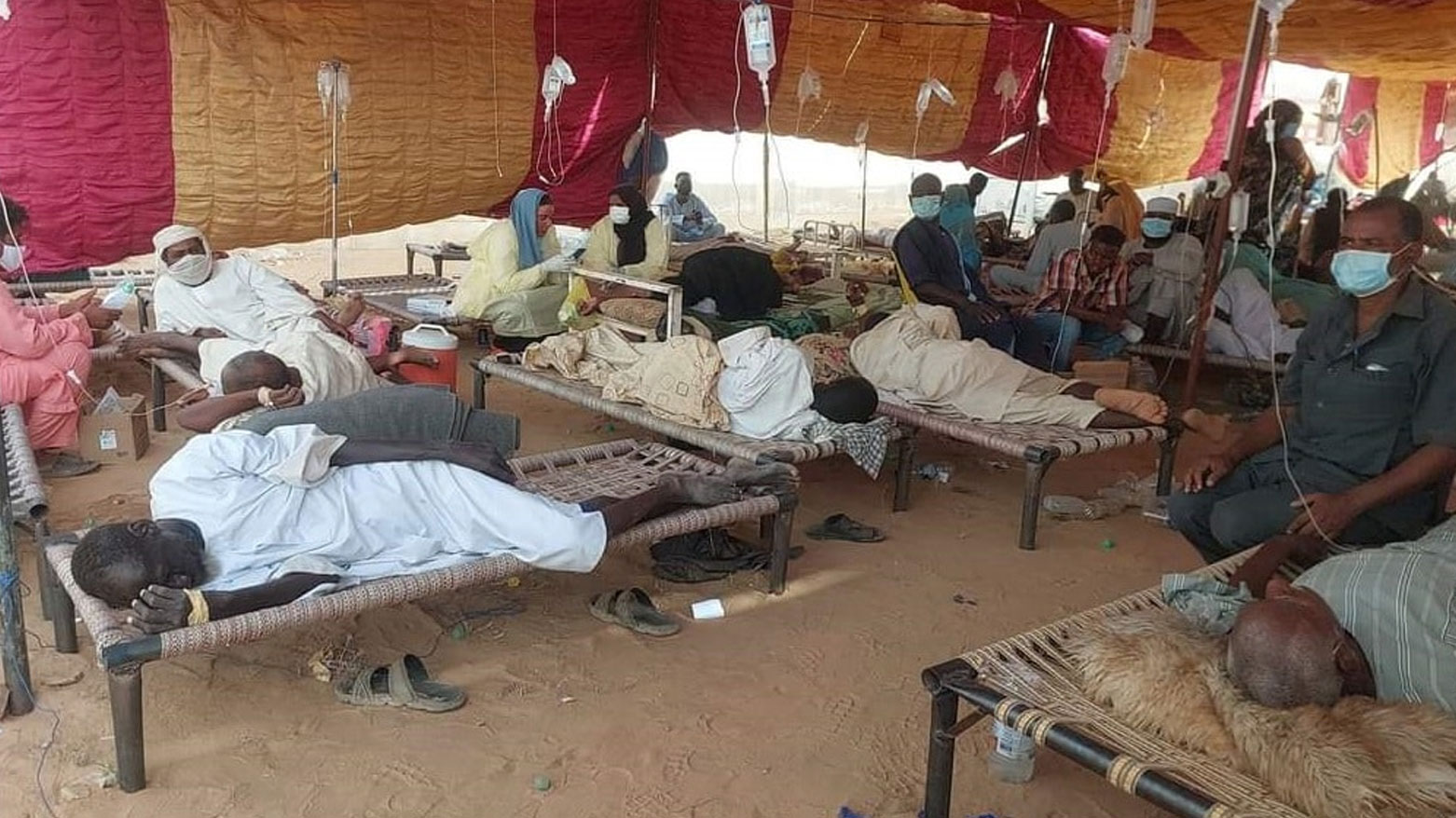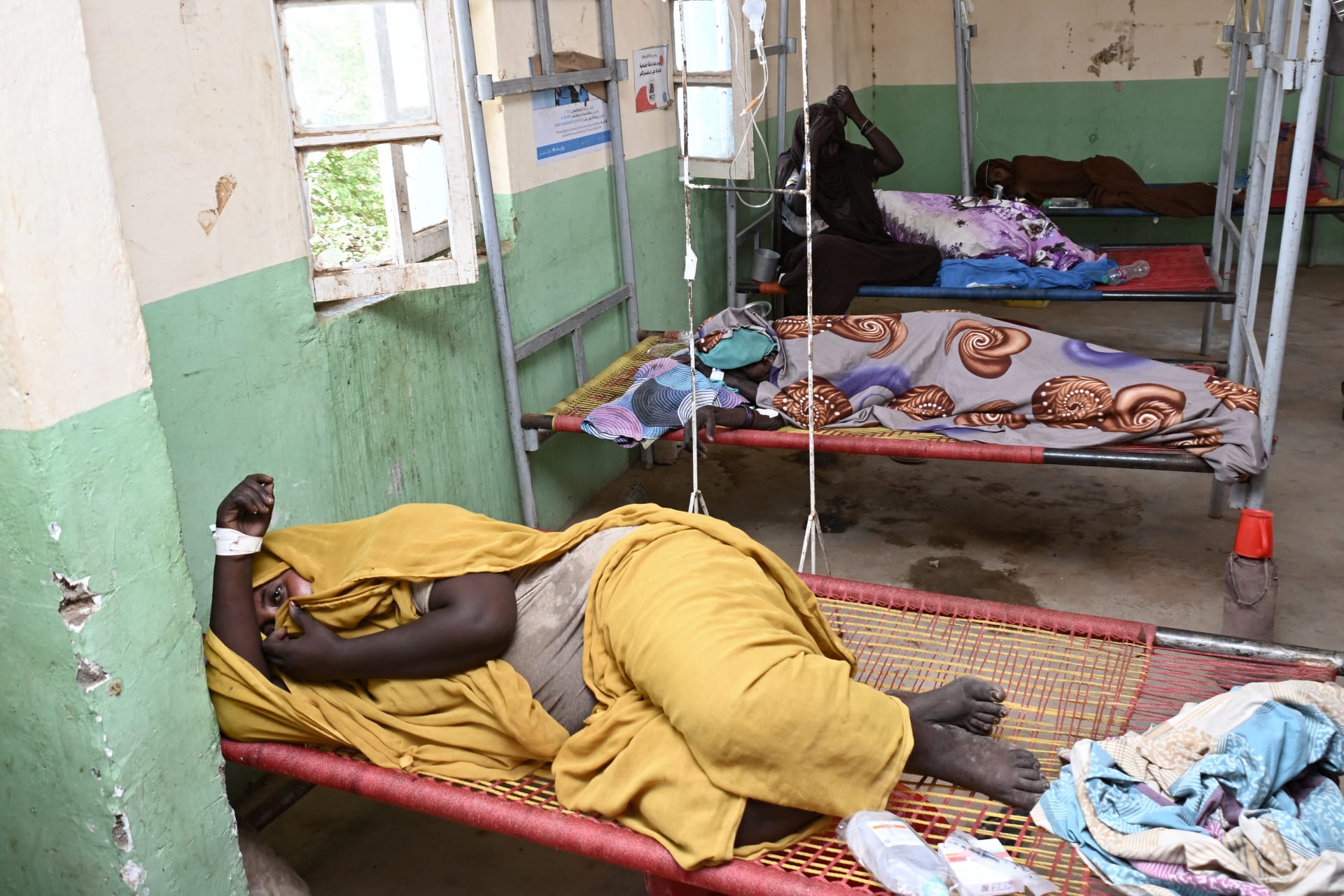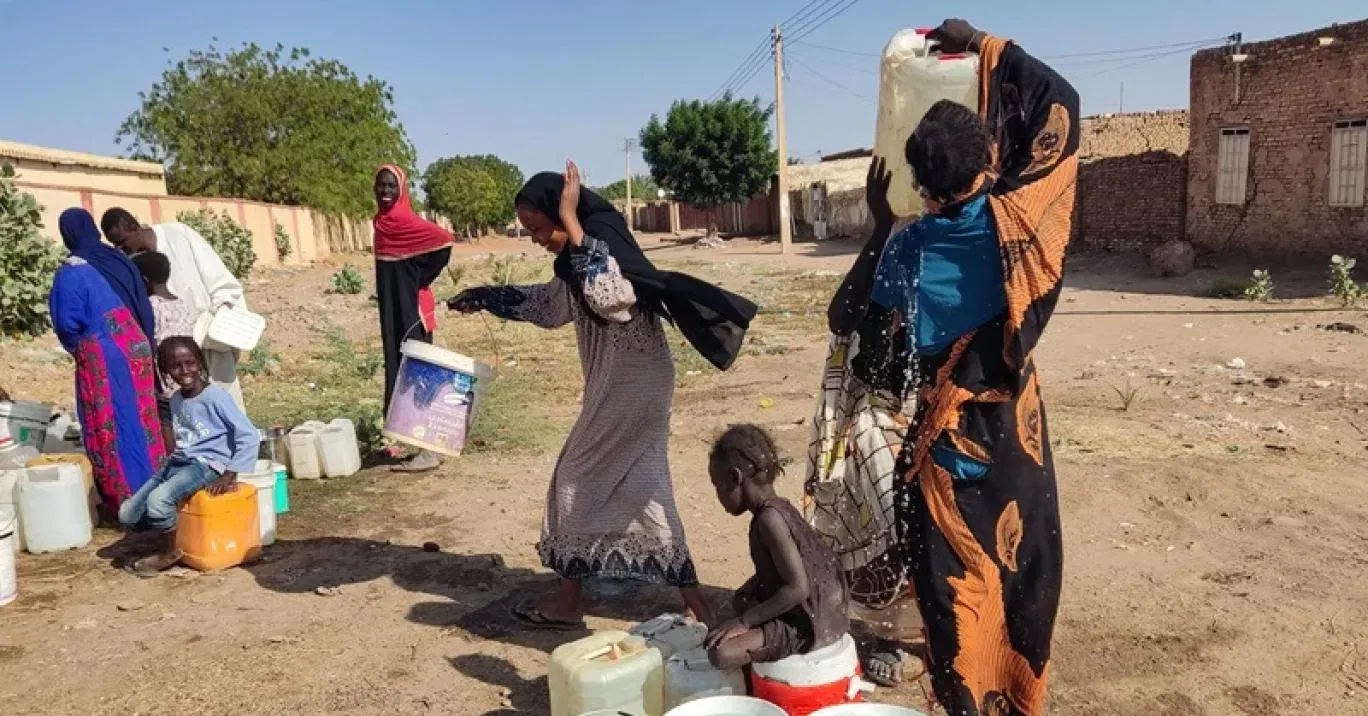When Sudan’s Tragedy Deepens: How Hemedti Fueled Cholera Outbreak

In North Darfur alone, 640,000 children under the age of five are at risk of contracting cholera.
The rebellion of Mohamed Hamdan Dagalo, known as Hemedti, is no longer the sole force claiming civilian lives in Sudan. It has been joined by a deadly outbreak of cholera, threatening what little remains of life’s essentials in the war-torn country.
With the health system in near total collapse and medical infrastructure shattered by fighting between the Sudanese Army and Hemedti’s Rapid Support Forces, Doctors Without Borders (MSF) declared on 14 August, 2025, that Sudan is facing its worst cholera outbreak in years.
A Map of Contagion
In Darfur alone more than 2,300 patients received treatment within days, while at least 40 died in a single week, stark evidence of overlapping crises and mounting disasters.
The organization warned that without an urgent and coordinated response, the epidemic could grow into a nationwide health catastrophe, spreading from the battlefields of the west to camps for the displaced and refugees, where the lack of clean water, food, and medicine provides ideal conditions for the disease.
Sudan Doctors Network reported that cases in Darfur have already exceeded 6,000, with 103 deaths recorded in Tawila by early August. According to Doctors Without Borders, the outbreak has reached almost all of Sudan’s 18 states since the war began in April 2023.
Just 70 kilometers from el-Fasher, the army’s last besieged stronghold in Darfur, the town of Tawila has become the epicenter of infection. Hosting hundreds of thousands of people fleeing violence, its modest cholera wards were overwhelmed at the start of August, with every bed filled by exhausted patients.
In North Kordofan, both war and disease have driven tens of thousands to seek refuge in el-Obeid, the state capital. The local authorities confirmed successive waves of displacement from North Barah, al-Khoei, and southern el-Obeid, alongside mounting deaths and infections.
Doctors Without Borders cautioned that the epidemic is no longer confined within Sudan’s borders, pointing to signs of its spread into Chad. In a parallel warning, Sheldon Yett, UNICEF’s representative in Mogadishu, said the disease had already crossed into South Sudan and was advancing toward Chad, adding that failure to contain the outbreak could see it spreading across frontiers for weeks or even months.
“In displacement and refugee camps, families often have no choice but to drink from contaminated sources and many contract cholera,” says Sylvain Penicaud, MSF project coordinator in Tawila. “Just two weeks ago, a body was found in a well inside one of the camps. It was removed, but within two days, people were forced to drink from that same water again.”

A Crisis Without Oversight
UNICEF has warned that nearly 640,000 children under the age of five in North Darfur alone are at risk of contracting cholera, as fighting for control of el-Fasher continues.
The agency stressed that combating the disease requires integrated surveillance systems, including immediate reporting, data analysis, and information sharing from the local to the global level. Rapid diagnostic testing is essential for early detection, with laboratory confirmation needed to verify results.
Sudan, crippled by war and siege, is unable to carry out such measures. The collapse of medical infrastructure, the scarcity of clean water, the absence of functioning sanitation, and the shortage of medicine have left vast areas exposed to the epidemic with no effective intervention.
Hundreds of thousands of displaced people have been forced to resort to desperate measures, mixing water with lemon in the hope of fending off the deadly bacteria.
On its official website, the World Health Organization describes cholera as an acute infection causing severe diarrhea, transmitted through contaminated food or water, and a stark indicator of social inequity, economic decline, and disorder.
Most carriers show no symptoms, yet they remain infectious for up to ten days. For those who fall ill, the organization notes that early treatment is vital and can save lives through oral or intravenous rehydration, supported by antibiotics.

Health Sector in Collapse
The organization said the scale of the outbreak is a direct consequence of the blockade imposed by the UAE-backed Rapid Support Forces. Supply chains have been severed, basic care programs halted, medicines depleted, and hundreds of doctors and medical staff forced to flee.
It held the rebel forces fully responsible for the spread of the disease, accusing them of blocking state institutions and humanitarian agencies from urgent intervention, and called on the international community to act decisively to secure aid access and protect civilians from starvation and intimidation.
According to Mohamed Ismail, the humanitarian commissioner in North Kordofan, more than 600 families (around 30,000 people) have fled conflict zones. He noted that some villages saw no fighting, yet the scale of displacement was immense. Residents from places such as Um Zain arrived on foot or on donkeys, many likely carrying the infection with them.
The cholera epidemic cannot be separated from the war. Since the conflict erupted between the Sudanese Army and the Rapid Support Forces, the medical system has lost about 80% of its capacity. Hospitals have been stripped of their function, turning from centers of treatment into theaters of death and ruin.
On April 23, 2025, Sudan’s health ministry reported that the cost of damage to the health sector had exceeded $11 billion, with 519 hospitals targeted across the country. More than 119 medical staff have been killed, while dozens have been detained or tortured, forcing hundreds of professionals to abandon conflict areas.
In some besieged towns, citizens have dug trenches inside hospital grounds to shelter doctors and patients. Elsewhere, the Rapid Support Forces have occupied hospitals as barracks or reserved them for their own fighters, further depriving civilians of care.
Alongside cholera, the Emergency Health Center recorded 13,314 cases of dengue fever, including 21 deaths in ten states, and 2,547 cases of measles with six deaths across eleven states.
The health ministry admitted that stocks of treatment solutions for cholera and dengue fever remain scarce, without providing precise figures.
By early July 2025, the UN Office for the Coordination of Humanitarian Affairs issued a stark warning: 33.5 million people, including 5.7 million children, are at risk of contracting cholera amid the collapse of the health system, the lack of clean water, and the country’s inability to respond to spreading epidemics.

Fear Takes Hold
“The health situation in Sudan has reached a critical stage,” Wael Ali, a Sudanese doctor, told Al-Estiklal.
“Most cholera patients live in areas outside the government’s reach, many of them in territory seized by the Janjaweed, the Rapid Support Forces, who, despite controlling swathes of land, are incapable of providing even the most basic services.”
“The Janjaweed and their commanders have no understanding of how to run public services or manage administration,” he said. “That deepens the crisis and leaves civilians to face death without protection.”
The doctor described conditions as “extraordinarily harsh,” with cholera sweeping through neighborhoods “like fire through dry grass” and death becoming both familiar and frightening.
“We have already lost neighbors, children, women, and young men among them, and fear is everywhere,” he added.
Public hospitals are too few to meet the need, while private clinics refuse to admit cholera patients, preventing many from accessing treatment in time.
Dr. Ali also noted that recent medical reports suggested some of the current cases, though resembling cholera, may in fact be the result of chemical poisoning. He cited the release of smoke and dust from an arms depot in Darfur a month earlier.
“What is happening in Darfur, especially in el-Fashir, and in North Kordofan as well, is not just an outbreak of cholera,” he warned. “It may be a direct consequence of poisoning linked to the use of chemical weapons by the rebels, a matter that demands investigation.”
Sources
- Cholera Crisis Worsens in Sudan as Europe Calls for Aid Access [Arabic]
- Sudan: War fuels cholera outbreak across the region
- Thousands displaced by attacks in Sudan’s Kordofan amid cholera outbreak
- What We Know About the Cholera Outbreak in Sudan [Arabic]
- Over 640,000 children under five at risk as cholera spreads in Sudan’s North Darfur State
- Warnings of a Health Crisis Between South Sudan and Ethiopia [Arabic]
- War Has Destroyed Most Medical Facilities: Hospitals in Sudan Turn into Scenes of Death and Destruction [Arabic]









